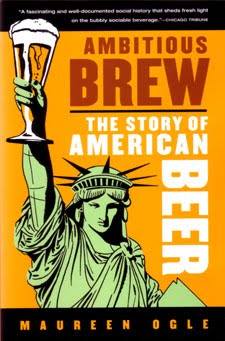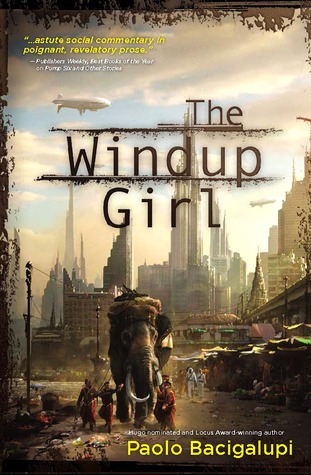Sorry for the delay, kids. Life happens sometimes.
 But the set-back allowed me to see this link on the burgeoning brew scene in Duhloot. Combined with the awesomeness that is the Northern Waters Smokehaus, and Duluth suddenly is a destination city.
But the set-back allowed me to see this link on the burgeoning brew scene in Duhloot. Combined with the awesomeness that is the Northern Waters Smokehaus, and Duluth suddenly is a destination city.
Back to the book biz. This month's selection, Ambitious Brew: The Story of American Beer by Maureen Ogle, is after my own heart. I received this book as a holiday gift from my kids, love them.
Ogle entertainingly chronicles the personalities and travails of America's founding beer dynasties -- the Bests, Buschs, Millers, Schlitzs and so forth, through the heady expansion years of the late antebellum and throughout the postbellum period, the culture wars that led to Prohibition, the triumphant return and then consolidation of the industry in the decades after repeal, and finally the giddy resurrection of craft brewing in the late 1970s through today. It was fun to read her descriptions of the origins of the Best family's brewing operation in 1840s Milwaukee, interlaced with a smidge of malting and brewing chemistry.
This is not great history on a par with The Roommate or Robert Caro or Robert K. Massie, despite the occasional pretension. Some of the treatment of the economics, politics and social aspects, particularly early in the book, is rather amateurish. Her treatment of the consolidation in the industry during the 1950s and 1960s is pretty limited. For example, while she devotes a few lines to the adoption of "accelerated batch fermentation" in her depiction of the fall of Schlitz, I think she underplays the importance of technological innovations as well as the growing use of rice and corn adjuncts in place of malted barley as paving stones on the road to beer hell.
The beer market stagnated in the 1950s and 1960s, thanks to watered-down quality, but also several other factors that Ogle identifies -- a demographic lull in prime beer-drinking aged consumers, a tremendous rebound in consumption of hard liquor, and the rise of the diet industry (infamously culminating in the insidious triumph of Light/Lite "beer").
Some of her prose and analysis left me wanting to drink. E.g., "But beer also fell victim to a national palate that, since the 1920s, had gravitated toward the sugary and the bland, both of which can be seen as hallmarks of a modernizing society" (p.227). Ugh. She then goes on to tie those trends to "a more casual attitude toward sex, to name one example" of "modern" attitudes. Double ugh.
Ogle is at her best mining correspondence, press coverage and other contemporary accounts to tell the personal stories of intrigue and competition between the beer baron families, and, later, sketching the lives of modern pioneers, such as Anchor Steam's founder, Fritz Maytag, Sierra Nevada's founder, Ken Grossman, and Boston Brewing Co.'s Jim Koch. This is entertaining reading.
When she stays away from Deep Thoughts, this is a fun book, worthy of the beach or late-night bedtime reading. You'll come away with a much deeper appreciation for the place of the brewing industry in American history, and some great anecdotes.
What are you reading?

 But the set-back allowed me to see
But the set-back allowed me to see  The New Year is a traditional time to look backward and look forward. Today's selection, Joan Vinge's 1991 Hugo nominee,
The New Year is a traditional time to look backward and look forward. Today's selection, Joan Vinge's 1991 Hugo nominee, 



